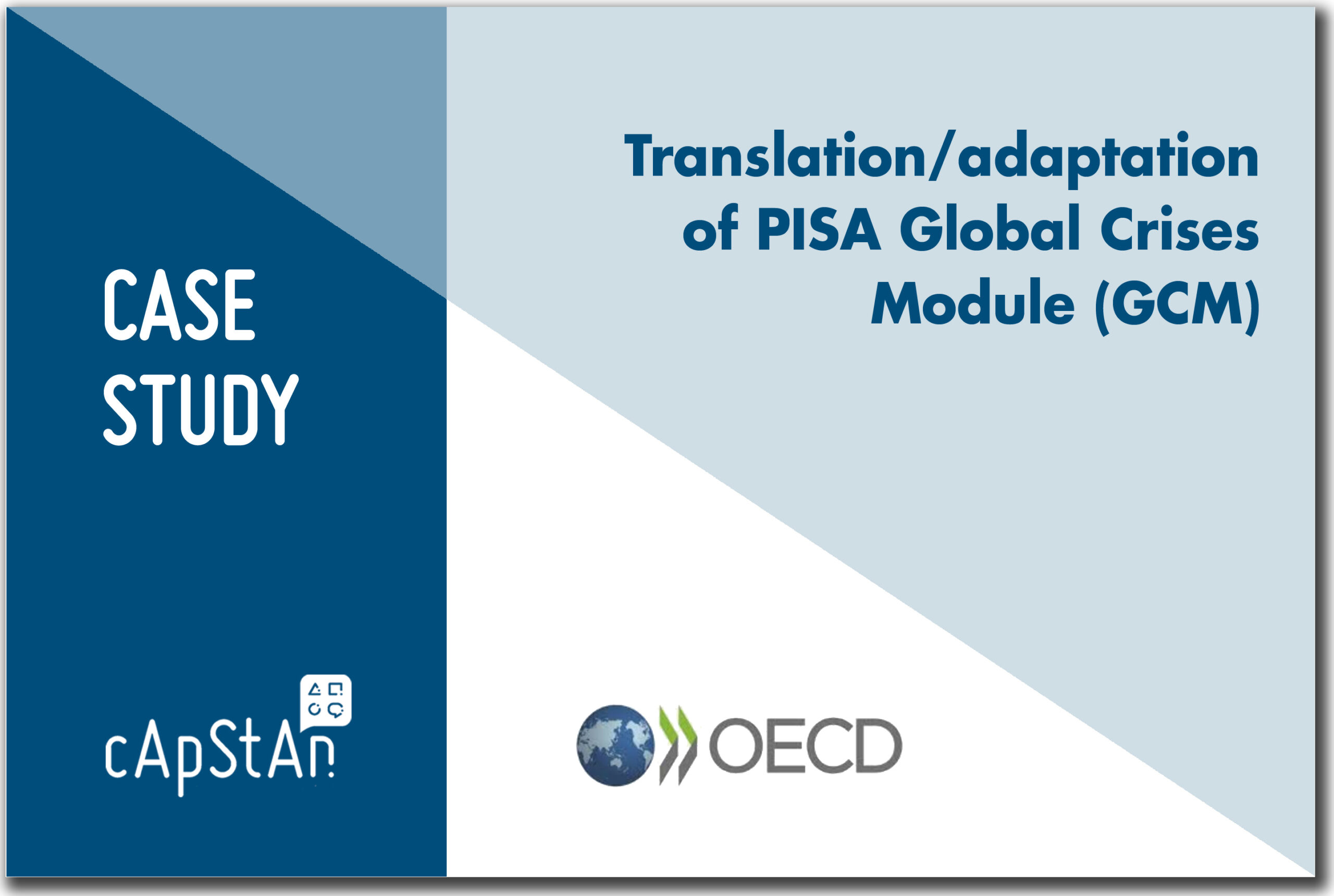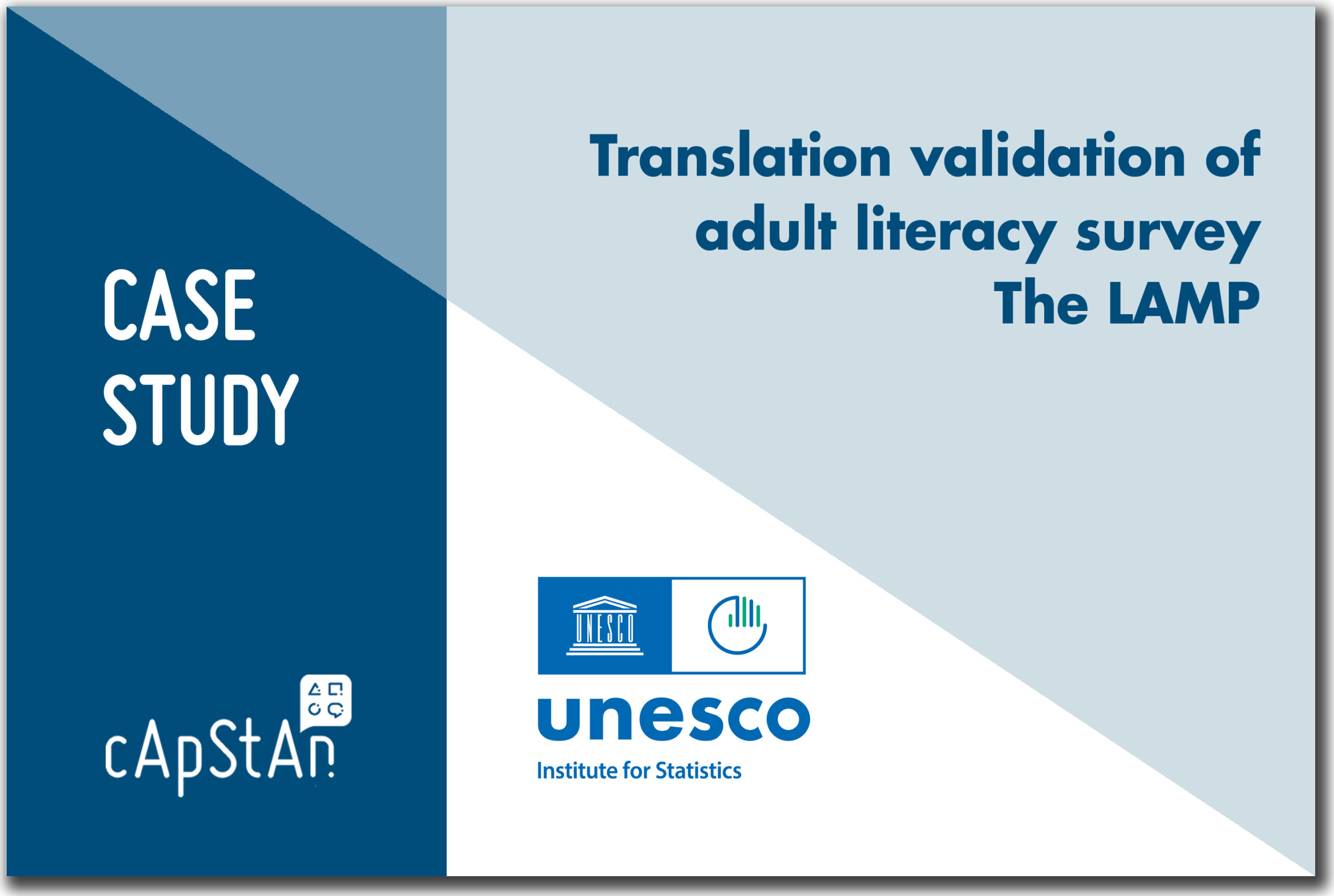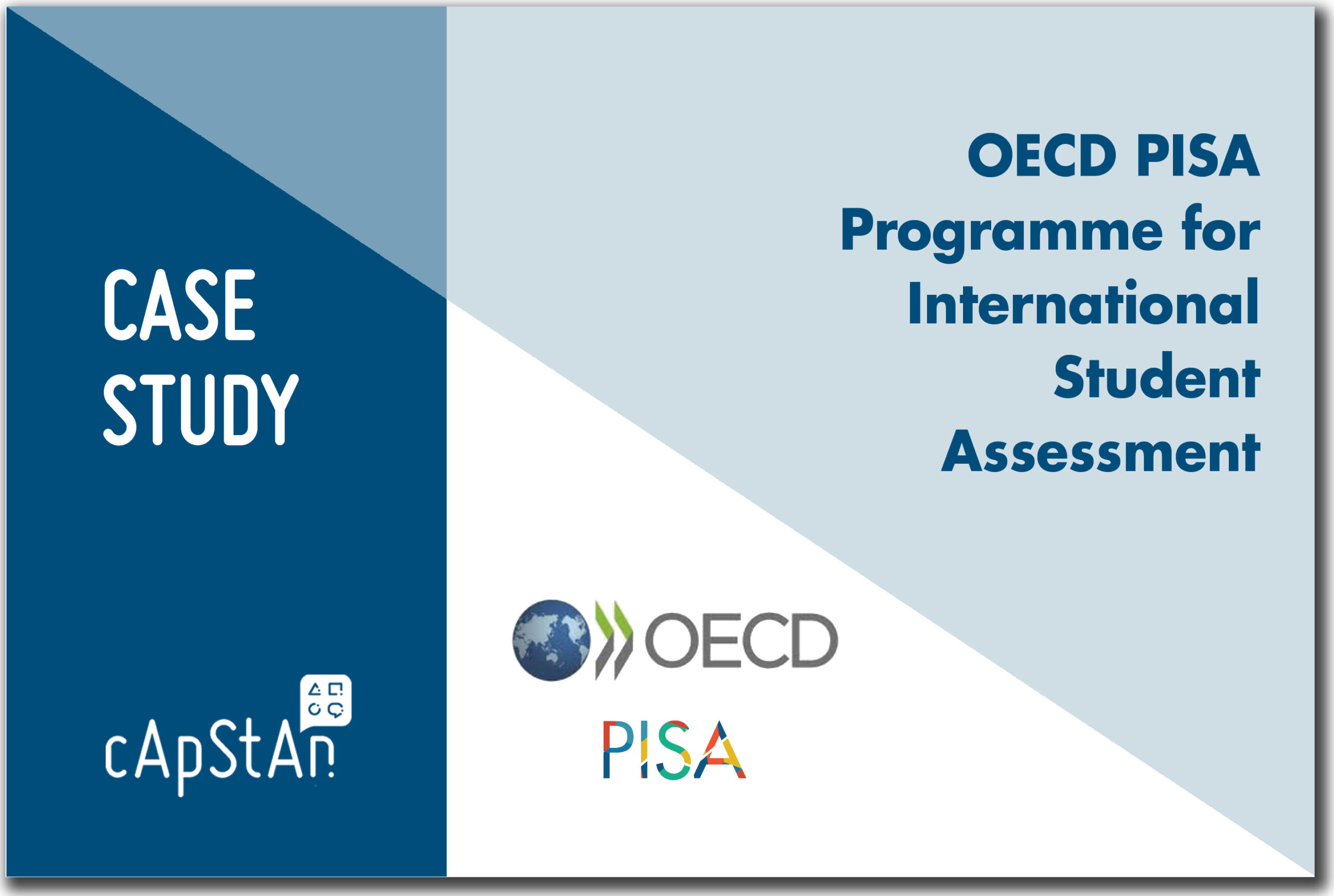How do you reliably measure knowledge and skills internationally?
Assessing educational achievement in diverse contexts requires adapting achievement tests into multiple languages with a focus on cross-cultural equivalence. Testing organizations are increasingly motivated to bring their psychological tests, skills assessments, screening tests and other evaluation tools to new audiences, new regions and new cultures.
cApStAn has played a pioneering role in implementing and documenting sophisticated translation and adaptation models, and has developed translation verification checklists in close collaboration with psychometricians and researchers.
Other Fields We Work In
Our Work in Knowledge and Skills
International Large-Scale Assessments
Our methodology is based on the International Test Commission Guidelines for translation and adaptation. We advise on translatability, develop source and reference versions, and verify third-party translations. We maximize the comparability across language versions that data analysts take for granted.
Admission Exams
When applicants are given the choice between several languages, we make sure a test is reliable, valid and fair in its respective language versions.
Psychological Tests
How to translate a psychological test? When response scales are sensitive and stakes are high, we apply a double translation, reconciliation, and adjudication process, involving industrial and organizational psychologists in the target language.
Certification Programs
In localizing the modules, tests and scoring guides of highly specialized content, we recommend a combination of pre-translation work (glossaries validated by partners in the target region), experienced translators and subject matter experts (SMEs). Controversial issues are moderated by a cApStAn senior linguist.
Contextual Questionnaires
Along with knowledge and skills assessments, we translate and verify contextual questionnaires that collect data on demographics, educational and professional background, and attitudes to learning. We verify that translated questions are understood as intended to ensure accurate data collection.


